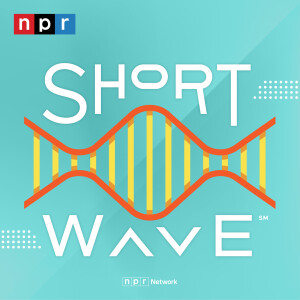
The human brain can process 11 million bits of information every second. But our conscious minds can handle only 40 to 50 bits of information a second. So our brains sometimes take cognitive shortcuts that can lead to unconscious or implicit bias, with serious consequences for how we perceive and act toward other people. Where does unconscious bias come from? How does it work in the brain and ultimately impact society?
Learn more about sponsor message choices: podcastchoices.com/adchoices
NPR Privacy Policy
view more
Learn more about sponsor message choices: podcastchoices.com/adchoices
NPR Privacy Policy
More Episodes
The Sound Of Fear: Why Do Animals Scream?
 2024-10-30
2024-10-30
 2024-10-30
2024-10-30
Embracing Death: Why We Age
 2024-10-29
2024-10-29
 2024-10-29
2024-10-29
Honey, They Cloned The Apples!
 2024-10-28
2024-10-28
 2024-10-28
2024-10-28
Saving The Hawaiian Tree Snails
 2024-10-25
2024-10-25
 2024-10-25
2024-10-25
A Brand New Kind of Schizophrenia Treatment
 2024-10-23
2024-10-23
 2024-10-23
2024-10-23
Game Night With 'Shrooms
 2024-10-21
2024-10-21
 2024-10-21
2024-10-21
New Frogs Just Dropped
 2024-10-18
2024-10-18
 2024-10-18
2024-10-18
What The Heck Is A Rock Glacier?
 2024-10-11
2024-10-11
 2024-10-11
2024-10-11
Anxious? Try Watching A Scary Movie
 2024-10-09
2024-10-09
 2024-10-09
2024-10-09
How Do You Spot A Liar?
 2024-10-08
2024-10-08
 2024-10-08
2024-10-08
Mapping The Entire Fruit Fly Brain
 2024-10-07
2024-10-07
 2024-10-07
2024-10-07
Why Astronomers Are Teaching Climate Change
 2024-10-02
2024-10-02
 2024-10-02
2024-10-02
If Fungi Win, Will We Be Ready?
 2024-10-01
2024-10-01
 2024-10-01
2024-10-01
Hurricane Helene Is Here And Powerful
 2024-09-27
2024-09-27
 2024-09-27
2024-09-27
012345678910111213141516171819
Create your
podcast in
minutes
- Full-featured podcast site
- Unlimited storage and bandwidth
- Comprehensive podcast stats
- Distribute to Apple Podcasts, Spotify, and more
- Make money with your podcast
It is Free
- Privacy Policy
- Cookie Policy
- Terms of Use
- Consent Preferences
- Copyright © 2015-2024 Podbean.com




